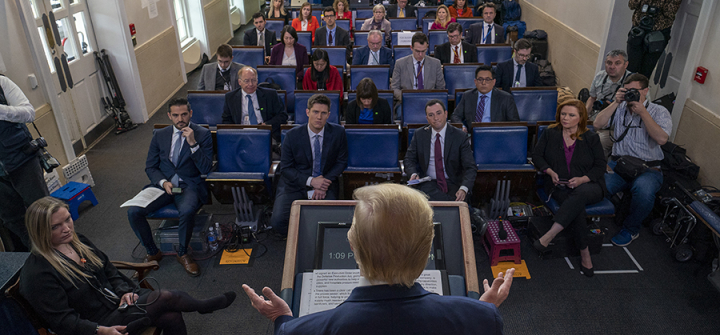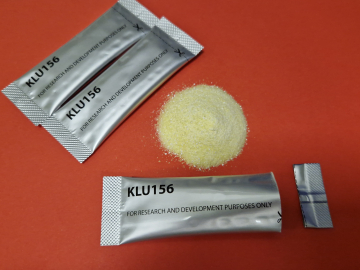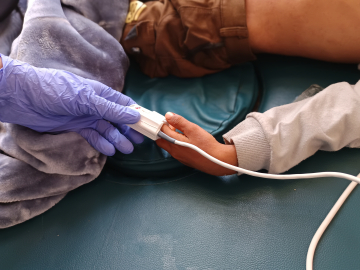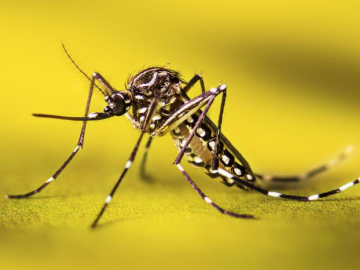COVID-19’s Painful Lesson in Leadership
Leadership matters. Competence matters. Preparation matters—especially when you’re given advance warning.
Above all, organized action by a capable government matters. It’s what happened during past natural disasters, financial crises, and terrorist attacks. Although the responses were far from perfect, this was the norm for the 6 administrations that I served in as a nonpartisan senior official.
As citizens, we have every right to expect that President Trump and his administration would have spent January through mid-March mobilizing for COVID-19 as a looming natural disaster. Instead, the Trump administration wasted precious time minimizing the threat (“We have it totally under control.”) despite clear, advance warning. Reports in December of COVID-19 in China should have triggered intensive preparation for testing to detect and contain the disease (as was done in South Korea). And before that, an October 2019 US government report summarized months of exercises that simulated a pandemic of respiratory disease (influenza, in that case), according to The New York Times. The report analyzed the magnitude of the potential disaster, identifying massive shortfalls in equipment, supplies, facilities, and the supply chain.
Appropriate preparation would have markedly reduced deaths and economic devastation. Empty (if not misleading) rhetoric cannot substitute for concerted action among federal, state, and local agencies. Waiting until mid-March to begin putting ourselves on a wartime footing was way too little, way too late.
The earliest COVID-19 hotspot in the US—the Seattle area—provides an inspiring case study illustrating how leadership, honest communication, and concerted action make a huge difference, even if it doesn’t result in a panacea. Washington Gov. Jay Inslee, local elected leaders, and public health officials all deserve enormous kudos for their responsible actions. Recent articles in GQ, The New York Times, and Kaiser Health News detail how physician-scientists at the University of Washington anticipated the impending crisis, developed a COVID-19 test, and invested millions of dollars to create testing capacity, overcoming bureaucratic inertia at FDA and CDC. By March 13, the University of Washington clinical laboratory had conducted 3 of every 10 COVID-19 tests done in the nation. UW leaders worked closely with the health department, elected officials, and local leaders to prepare for the challenges, marshal resources, adapt to changing demands, and solve emerging problems. While the situation in the Seattle area remains critical, everyone has come together the way we all should to deal with a crisis.
Leadership organizes our responses to a crisis, enabling effective action and inspiring heroic contributions. Ohio Gov. Mike DeWine has been an effective, bipartisan leader, mandating “social distancing,” communicating a calm but consistent message about the public health emergency and visibly relying on Amy Acton, MD, MPH, the Ohio Public Health Department director. California Gov. Gavin Newsom and local leaders have implemented unprecedented actions to slow the spread of COVID-19 and prepare the health care system, including “stay at home” orders and the rapid addition of hospital capacity. And in straightforward, factual briefings attracting a wide audience, New York Gov. Andrew Cuomo has conveyed the magnitude of the public health crisis threatening his state and New York City, laying out the desperate plight of hospitals, the shortfall in supplies and equipment, the importance of slowing the spread of the contagion, and the overwhelming need for federal action.
Having missed the opportunity to contain COVID-19, our leaders must act to mitigate its spread and devastation. Effective action requires clear, consistent communication dictated by public health and science, not public relations. All levels of government must work together seamlessly, driven by the mission, not worries about bureaucratic turf. Action must be immediate and overwhelming. Continuing failures to fully mobilize all available federal resources and powers will add immeasurably to the human and economic toll.
Time is truly of the essence. Delay costs lives. Leadership matters. It’s that simple.
Steven M. Lieberman is a nonresident fellow in Economic Studies at the Brookings Institution and a retired senior federal official who has worked at the White House Office of Management and Budget, the Congressional Budget Office, and the Centers for Medicare and Medicaid Services.
For the latest coronavirus news, visit here.
For the latest, most reliable COVID-19 insights from some of the world’s most respected global health experts, see Global Health NOW’s COVID-19 Expert Reality Check.
Join the tens of thousands of subscribers who rely on Global Health NOW summaries and exclusive articles for the latest public health news. Sign up for our free weekday newsletter, and please share the link with friends and colleagues: https://www.globalhealthnow.org/subscribe
President Donald Trump briefs the press on March 21. Photo by Tasos Katopodis/Getty Images




